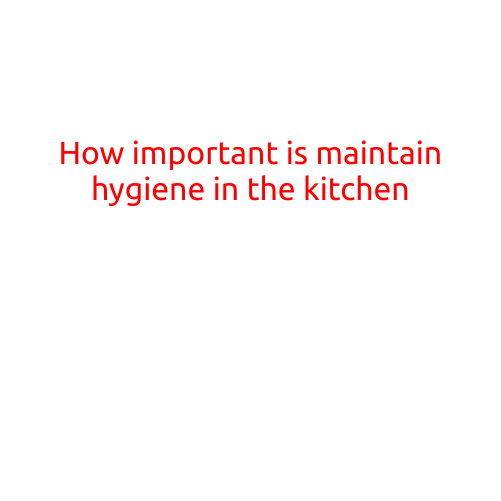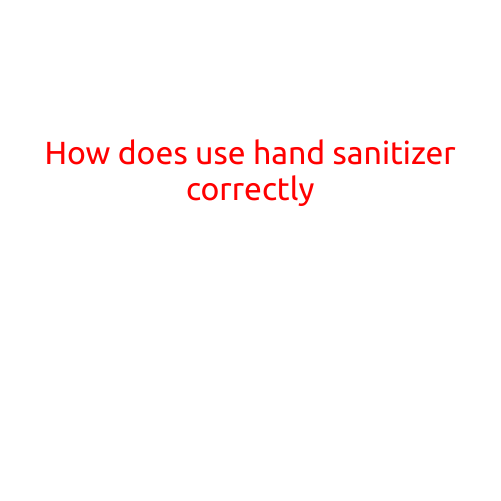
How Important is Maintaining Hygiene in the Kitchen?
When it comes to cooking and preparing food, maintaining hygiene in the kitchen is crucial. Good hygiene practices can prevent the spread of foodborne illnesses and ensure that the food you prepare is safe to eat. In this article, we’ll discuss the importance of maintaining hygiene in the kitchen and provide tips on how to do it effectively.
Why is Kitchen Hygiene Important?
Kitchen hygiene is important for several reasons:
- Prevents Foodborne Illnesses: Foodborne illnesses are caused by bacteria, viruses, and parasites. These microorganisms can be present on food, cooking utensils, and surfaces, and can cause serious health problems if ingested. By maintaining good hygiene practices, you can prevent the spread of these microorganisms and reduce the risk of foodborne illnesses.
- Ensures Food Safety: Maintaining kitchen hygiene ensures that food is prepared, cooked, and stored safely. This means that the risk of contamination is minimized, and the food you prepare is safe to eat.
- Promotes a Clean and Healthy Environment: A clean and hygienic kitchen is not only important for food safety, but it also promotes a healthy and safe environment for cooking and preparing meals.
How to Maintain Kitchen Hygiene
Maintaining kitchen hygiene is easier than you think. Here are some tips to help you get started:
- Wash Your Hands: Washing your hands with soap and warm water is the most important thing you can do to maintain kitchen hygiene. Wash your hands:
- Before starting to cook
- After handling raw meat, poultry, or seafood
- After touching pets or their waste
- After using the bathroom
- Clean and Sanitize Surfaces: Surfaces that come into contact with food, such as countertops, sinks, and stoves, should be cleaned and sanitized regularly.
- Store Food Safely: Store food in airtight containers and at the correct temperature to prevent cross-contamination.
- Clean and Sanitize Utensils and Equipment: Utensils and equipment, such as knives, cutting boards, and pots and pans, should be cleaned and sanitized after each use.
- Label and Date Leftovers: Label and date leftovers to ensure that they are consumed or discarded before they go bad.
- Regularly Clean the Refrigerator and Freezer: Clean the refrigerator and freezer regularly to prevent the buildup of bacteria and other microorganisms.
- Use a Good Drain Cleaner: Use a good drain cleaner to prevent clogs and bad odors.
Additional Tips
In addition to the above tips, here are some additional tips to help you maintain kitchen hygiene:
- Use a Meat Thermometer: Use a meat thermometer to ensure that meat is cooked to a safe internal temperature.
- Don’t Cross-Contaminate: Don’t cross-contaminate foods by handling raw meat, poultry, or seafood near ready-to-eat foods.
- Use a Clean Apron: Use a clean apron to protect your clothes from stains and splatters.
- Clean Up Immediately: Clean up spills and messes immediately to prevent the spread of bacteria and other microorganisms.
Conclusion
Maintaining kitchen hygiene is crucial for preventing foodborne illnesses and ensuring that the food you prepare is safe to eat. By following the tips and guidelines outlined in this article, you can maintain a clean and hygienic kitchen that is safe for cooking and preparing meals. Remember, good kitchen hygiene is not just about following rules, it’s about being responsible and caring for your health and the health of those around you.





